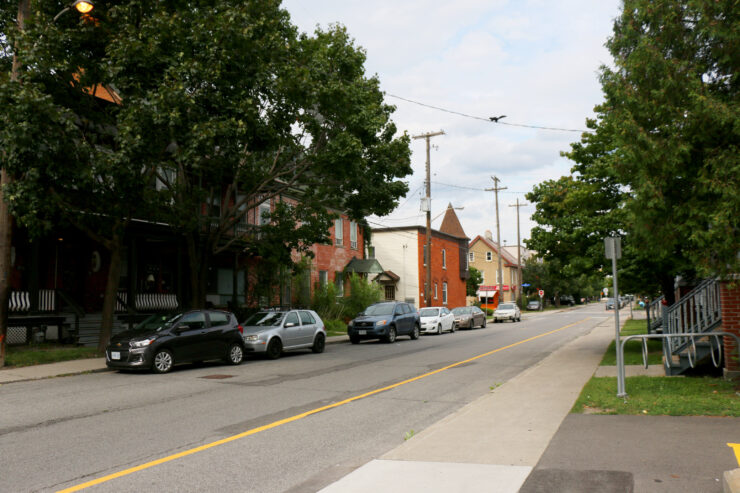
ON DEC. 9, the Ottawa Police Service made a public announcement stating they had observed a pattern of violence against women involved with street-level sex work. Tyrus Cameron, chief of Major Crimes, later noted the police believe a single predator is responsible for the deaths of several female sex workers in the Ottawa area over the last 21 years—a safety advisory was put out shortly after the announcement.
The advisory recommended sex workers avoid isolated areas, take longer when getting into clients’ cars, and work in teams to reduce their risk of physical harm.
Ottawa groups that advocate on behalf of sex workers, including Prostitutes of Ottawa/Gatineau Work, Educate, Resist, the Elizabeth Fry Society of Ottawa, Sexual Assault Support Centre, Families of Sisters in Spirit (FSIS), AIDS Committee of Ottawa, and Canadian Association of Elizabeth Fry Societies, found flaws in these recommendations.
“We thought that it wasn’t enough for the police service to say there’s a serial killer and girls need to protect themselves,” said Kristen Gilchrist, co-founder of FSIS. “Our feeling, along with the other five organizations, was that if they’re really concerned with the security and safety of street-level sex workers then they need to stop the street sweeps, they need to stop the harassment, the criminalization, and the arrests.”
While trading money for sex isn’t illegal in Canada, many of the activities surrounding the exchange are, such as soliciting in public and gathering in groups on the street.
Although the police’s recommendations would increase the physical safety of street-level sex workers, they would also raise the likelihood of the workers being arrested in one of the Ottawa police’s regularly occurring street sweeps, a fact the organizations find problematic.
“‘Sweeps’ are the language that the Ottawa police has used when they will go out with a concerted undercover operation and arrest people, most often for drug-related offences or for sex work-related offences,” said Karin Galldin, lawyer at Galldin Law, a firm hired to represent the organizations.
“Street sweeps push sex workers farther to the margins to avoid criminalization, and it is in those margins that they’re more vulnerable to violence,” Galldin added.
In light of the Ottawa Police Services’ December announcement, the six Ottawa organizations met with Galldin Law, a feminist legal practice, to advocate on the organizations’ behalf that the police change their current policies and keep street-level sex workers safe. On Jan. 20, Ottawa Police Services received a letter from Galldin Law.
“POWER [Prostitutes of Ottawa/Gatineau Work, Educate, Resist], the Elizabeth Fry Society of Ottawa, SASC [Sexual Assault Support Centre], FSIS [Families of Sisters in Spirit], ACO [Aids Committee of Ottawa], and CAEFS [Canadian Association of Elizabeth Fry Societies] all demand that your organization reverses its position on street ‘sweeps’ in Ottawa, and issues a moratorium on street sweeps until the Ottawa Police Service investigation into a serial predator is concluded and there are no further patterns of violence against women involved in street-level sex work,” says the letter.
The letter also notes legal action may be taken if the Ottawa Police Services do not change their policies to provide adequate protection to street-level sex workers.
While both Galldin and Gilchrist questioned the current criminalization of many activities surrounding sex work in Canada, they noted their primary goal is to ensure the safety of the city’s sex workers.
On Jan. 26, Galldin stated the Ottawa Police Service had responded to their letter and invited Galldin Law and the groups they’re representing to a conversation.
“This is just the first step. We’d really like to see [the police’s] response before we can move forward,” said Gilchrist. “I think that will require us to be plugging into what the women on the street would like to see.”
The Ottawa Police Service declined the Fulcrum’s request for an interview.
—Keeton Wilcock





